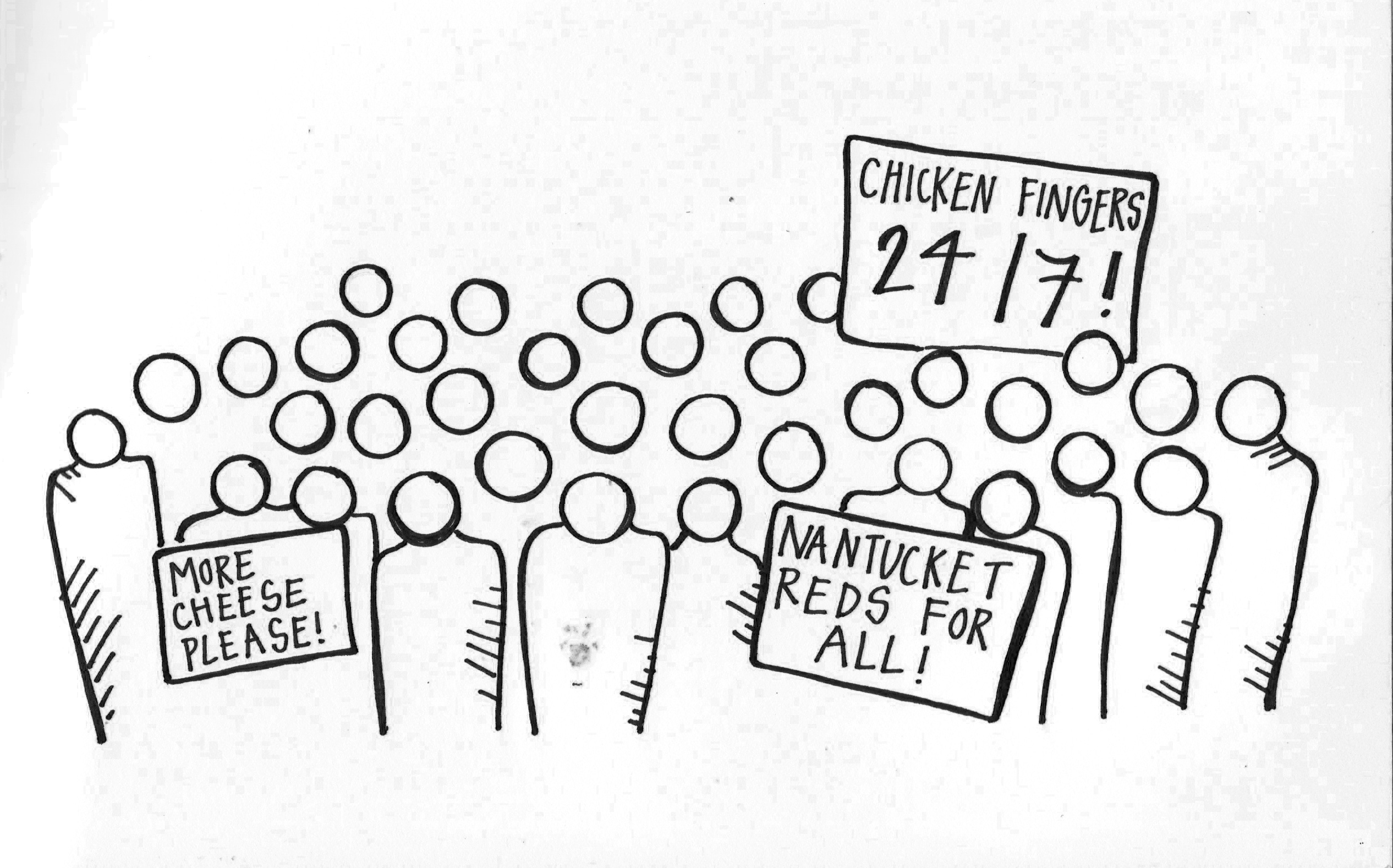A dollar is a snack from the New South vending machine, a drink from Hoya Snaxa, or one-fourth of a vanilla iced chai latte at Uncommon Grounds. It’s a short trip on the metro. But, for someone else a dollar can mean the difference between having a roof to sleep under and being homeless for a night. It can mean the difference between keeping a family fed and letting your loved ones go hungry.
Last Thursday, a discussion was held in Gaston Hall entitled “The State of the Black Worker in America.” As I sat there worrying about my midterm the next day, the speakers discussed the struggles they went through just to secure a living wage and those the common worker goes through every day to stretch minimum wage into a living wage on top of working with large corporations to secure their rights. They discussed the helplessness of being voiceless, of being at the mercy of corporations because they could not form a union to air their struggles.
It’s easy for us to forget the plight of the common worker because many of us have never had to experience it. For me, “work” means taking the subway to Bethesda once a week, doing a job that I really like, and promptly getting paid enough money to keep any college kid happy. For others, “work” is synonymous with struggle, with survival. Work is sustenance. It is the difference between life and death.
Why is it that I get to have fun while others have to scrape to get by? It’s because I had the good fortune to be born into a loving and hard-working family. For no reason whatsoever, I was given opportunities that some are never given.
It’s hard to realize that the differences between us and those less fortunate are few. There is absolutely no reason why the birth lottery ought to determine who gets to be on top in life. There is no reason why the arbitrary accident of class should be able to dictate the rest of our lives. While I am by no means denying the role of hard work in success, I think it would be absurd to deny that where we begin affects where we end, and that it would be unjust to simply embrace that randomness and arbitrariness.
The solution is to level the playing field, which means improving conditions for those who help make society tick without being recognized. As students, we sometimes forget about the difficulties of these people. But one can realize the common worker is stripped of his or her political voice. For example, WalMart’s wage policy prevents its workers from forming unions, a trend that is prevalent among big corporations.
My argument does not concern any particular right of a worker, such as the right to a living wage, but rather the workers’ right to have a voice in the first place through unions and other mediums that allow workers to express their needs and fight for their rights. A relationship in which workers are at the mercy of larger corporations is one of an oppressor and a victim. Workers’ voices are marginalized every day simply because the relationship between corporations and workers is not an equal one. The only way to actualize an equal relationship is to give the worker the voice to defend those rights in the first place. It is precisely because workers’ rights are so ambiguous that workers need a voice to express their struggles. Unionization is a necessary prerequisite to any other workers right, because it is the medium through which workers can claim their rights in the first place.
As college students, it’s easy to forget that there’s a world beyond our Georgetown bubble. It’s also easy to claim that we do not have the time or resources to fight the injustices around us, but the truth is that, as students, we are in a unique role to actualize change. Clubs like the Georgetown Solidarity Committee and programs like the Day Laborer Exchange Program and the Kalmanovitz Initiative are mediums for the Georgetown students to understand and advocate for workers. As students, many of us are the winners of the birth lottery. As such, we are obligated to fight for those who aren’t as lucky as we are, even when it is difficult or inconvenient to do so.




